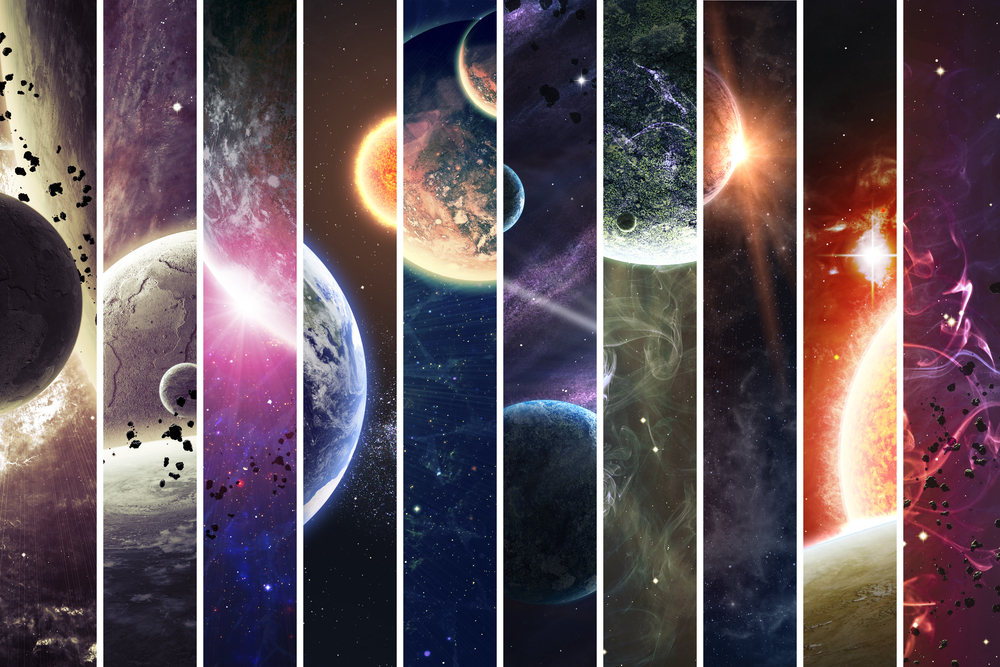Faith
Did the Universe Have a Beginning? Science, Time, and Creation Explained
A journey through physics, philosophy, and Torah to uncover the secrets of time and existence
- Daniel Blass
- |Updated

When exploring the common question if the universe had a beginning, we must understand that as we all exist within a system of change and movement, we are therefore bound by time. The universe is not eternal or infinite, as some mistakenly believe. The Hubble Space Telescope discovered that the universe is expanding, and galaxies are moving away from each other. The universe is not static; it is in constant motion, has a measurable size, and keeps growing. Every moment differs from the one before it.
This expansion proves that the universe was once smaller, until we reach its starting point — the moment of creation. Science refers to this as the singularity, the first instant when all material reality was concentrated in a single dense point before expanding into the universe we know today: “In the beginning, God created the heavens and the earth.”
This is also proof of God’s existence. Before the universe, there was no concept of time, as there was no matter and no movement. The cause of the universe therefore cannot depend on matter or time. Whatever is independent of time and matter must be infinite, eternal, unchanging, and without beginning or end. Philosophers call this the First Cause — the eternal God who created everything.
God has no beginning, just as He has no end. He does not grow old or change. He simply is, past, present, and future. Only such an eternal Being can be the source of a finite, time-bound reality.
In Judaism, the word Elohim means “Master of all powers,” but this name describes God only after He created the world, reflecting His actions within creation — just as we call someone a “carpenter” based on his craft, though he existed before he began building. Before creation, God was known by His holiest Name, the Tetragrammaton, which signifies His eternal essence: He was, He is, and He will be. Rabbi Shlomo Luntschitz (the Kli Yakar) explained: “He exists eternally, equally in all times” (commentary on Shemot 6:3).
 (Photo: shutterstock)
(Photo: shutterstock)How Do Scientists Calculate the Age of the Universe?
Although light travels incredibly fast at 300,000 km per second, it still takes time to cross space.
The sun is 150 million km away, which means that sunlight takes about 8 minutes to reach Earth. We never see the sun as it is right now, but as it looked 8 minutes ago. If the sun disappeared instantly, we would still see it shining for 8 minutes.
At night, we see light from stars that are millions of light-years away. This means their light traveled for millions of years before reaching Earth. Scientists use this to estimate the age of the universe at about 13.7 billion years.
However, this is not simple. A light-year describes distance, not time. One light-year equals 9.6 trillion km. The universe’s vast distances are measured by how long it takes light to travel them. Could the rate have been different in the past? We cannot be certain.
Dr. Peker wrote: “If a train passes one station at 50 km/h, can we assume it always traveled at that speed since it left its origin — or that it will continue the same speed ahead? Certainly not.” (Science, Vol. 6, No. 2, p. 10).
Modern science also acknowledges “dark energy” (about 70% of the universe) and “dark matter” (about 27%), mysterious forces we cannot see. In truth, we only observe about 5% of what exists! With such mystery surrounding the cosmos, it’s no surprise that much about the universe’s age and speed remains hidden. Billions of years may pass “in a moment,” when God is guiding the universe.
 (Photo: shutterstock)
(Photo: shutterstock)Can Billions of Years Pass in a Single Moment?
It depends on perspective. Movement equals time. Different objects move at different speeds, which means they experience time differently.
Einstein’s Theory of Relativity showed that time is not absolute, but relative to speed. The faster an object moves, the slower it ages compared to others.
The fastest thing in the universe is light — electromagnetic radiation moving at 300,000 km per second. Nothing can exceed this speed. If a spaceship could travel near light-speed, time for its passengers would slow dramatically. They might travel for just one hour, but return to find 70 years had passed on Earth!
Because time is relative, Professor Gerald Schroeder argues in The Science of God that the “days” of Genesis may be relative as well. From one perspective, billions of years could pass; from another, only “a single day.” As Psalm 90:4 says: “For a thousand years in Your sight are like a day that has just gone by.”
The Paradox of Time Travel
Some may wonder, if a person traveled faster than light and went back in time to stop his own birth, wouldn’t he erase the very possibility of traveling back? This is the time-travel paradox.
In truth, time travel is impossible because humans are bound by time itself. If someone could enter the past, he would essentially become a new being created out of nothing in that moment, not truly his past self.
Physically, “time travel” would mean breaking the very laws of time and matter, but because time is the fourth dimension of matter, trying to break it would be like destroying yourself. Anything approaching light speed disintegrates into particles. At such velocity, no solid body could survive, which means that nothing material could ever travel in time.

